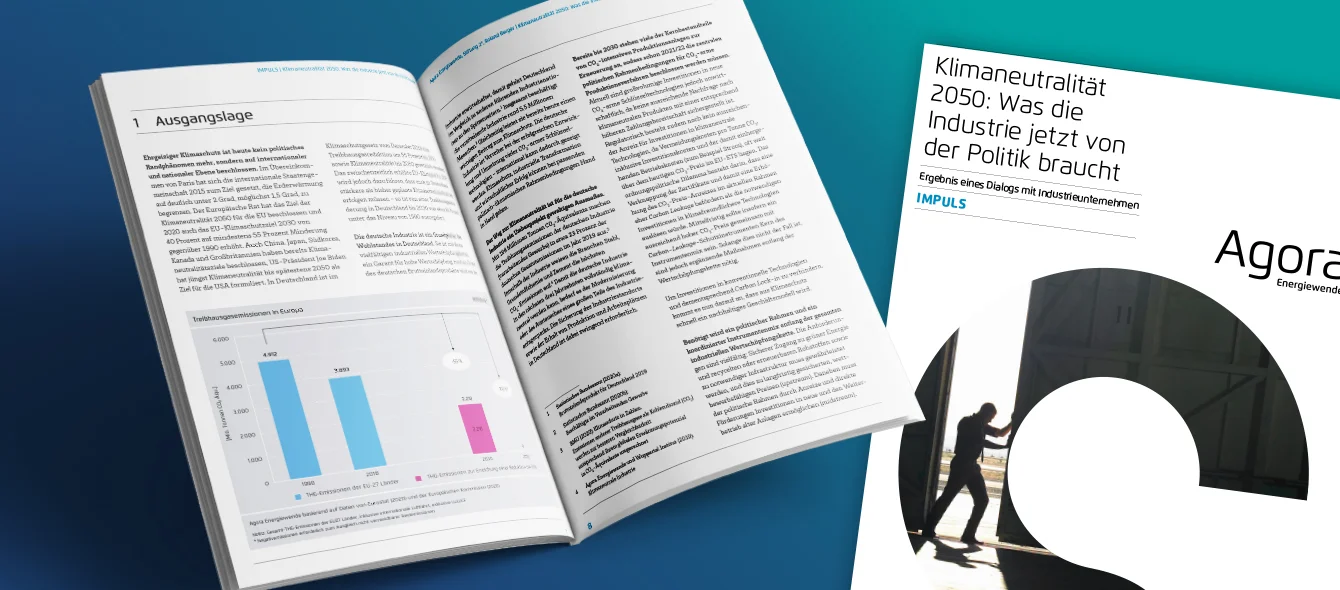Almost a quarter of Germany’s greenhouse gas emissions come from the industrial sector. This shows the urgent need to reduce emissions in steel and cement production as well as in the chemical industry. Accoring to a recent study by the think tank Agora Energiewende, extensive decisions on replacement investments in companies’ plant fleets are already pending in the short term. The challenge: due to very long investment cycles in some cases, many of these investments must already be aligned with the EU goal of “climate neutrality in 2050”, according to the study. Reinvestment in conventional technology – such as the renewal of the blast furnace route in steel production within Germany – is therefore ruled out from the outset.
The industry is thus faced with a dilemma. The price of emission certificates – despite the current high market price – is not sufficient to trigger investments in climate-friendly technologies. It is cheaper to emit CO2 and pay for it than to invest in new technologies. At the same time, the industry has no certainty that it will be able to hold its own on the world market in the long term with climate-friendly technologies. As a result, according to the study, companies are reluctant to invest in climate-friendly technologies and the rising CO2 price increases the risk of relocating production abroad.
12 demands from Agora to politicians
Agora has therefore presented twelve demands on how this dilemma can be resolved. The aim is to preserve Germany as an industrial location and to make industry climate-neutral by 2050.
Among other things, the think tank calls for a stronger expansion of renewables and power grids as well as the development of a national hydrogen economy. Another idea: industry should be encouraged to invest in new technologies through carbon contracts for difference. These contracts between the companies and the state would fix the CO2 price for the companies. If the CO2 price is low, the company receives compensation; if the price is high, the company must pay back the state, since the investment would then have been profitable even without support. In this way, it is ensured that climate-friendly investments are actually implemented despite CO2 prices that are too low from the industry’s point of view.
At the same time, Agora calls for protection against the migration of industry – which should not be put at a competitive disadvantage by the CO2 pricing that exists in Germany and the EU. For this reason, companies competing internationally should continue to receive free allocations of emission certificates. Border adjustment measures can also be examined, according to Agora.
For there is a dilemma here: the CO2 prices that would be necessary for the market introduction of many CO2-free technologies are so high that they simultaneously destroy the competitiveness of the conventional plants that are still needed in the transition. In addition, climate-friendly technologies would not be competitive on the global market, with lower or no CO2 pricing at all. Quote from the Agora Energiewende study
Photo credit: © Agora Energiewende
